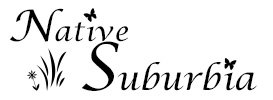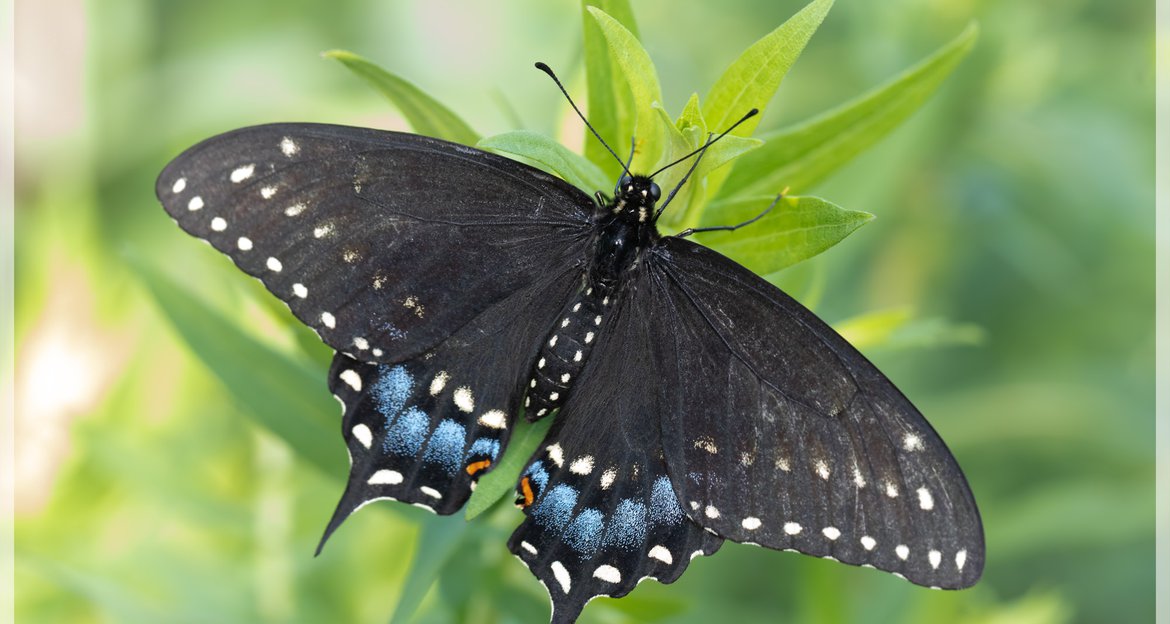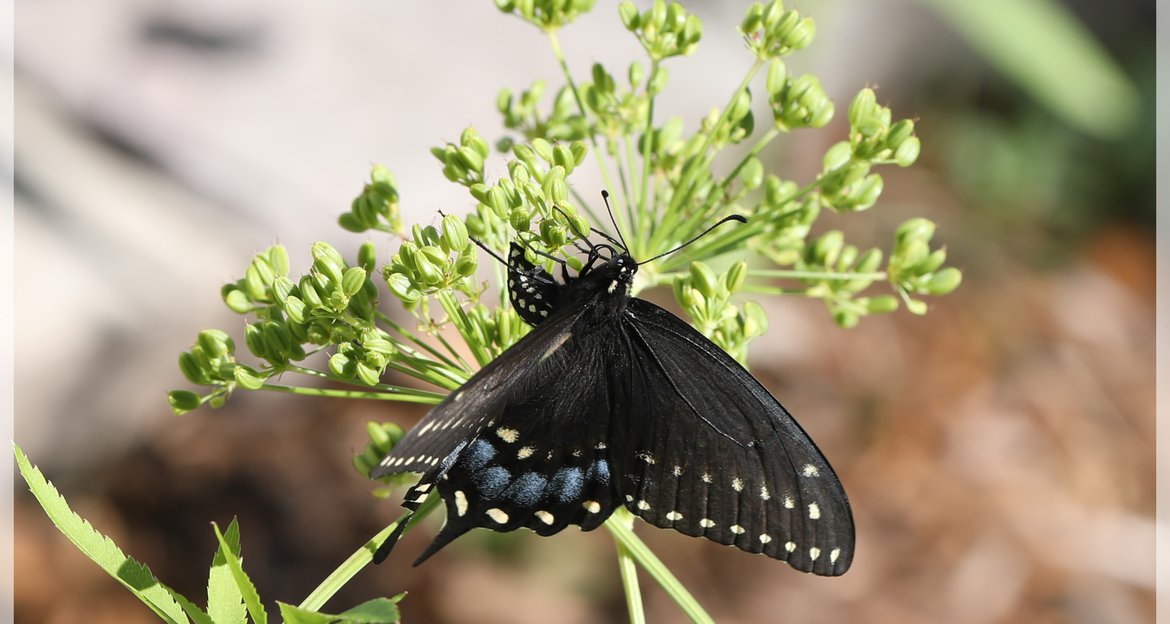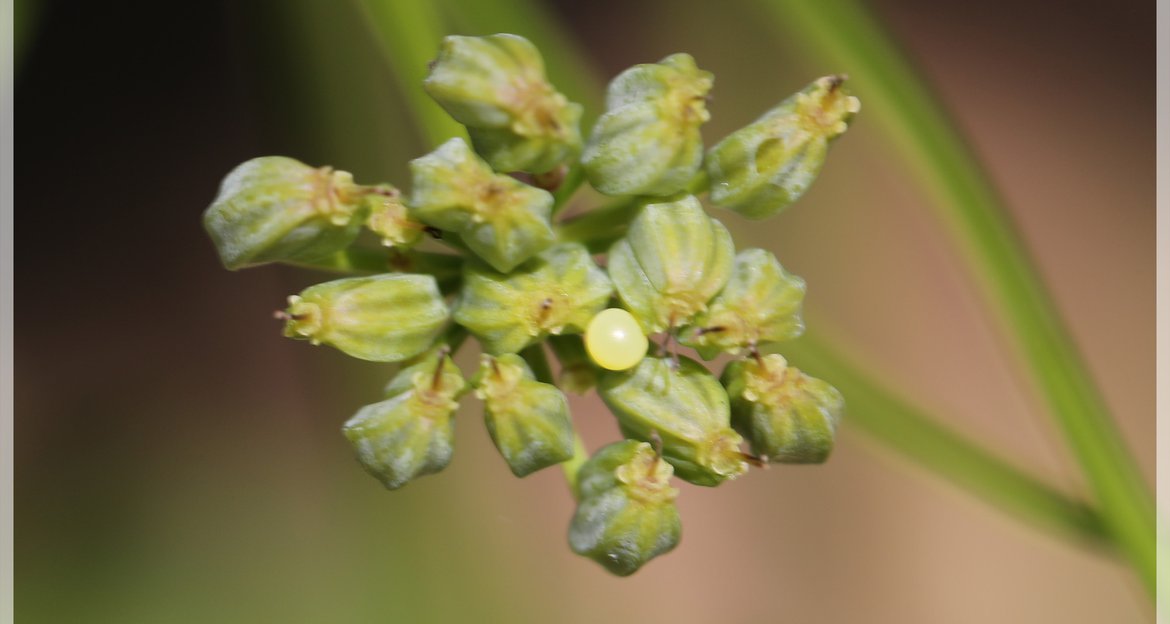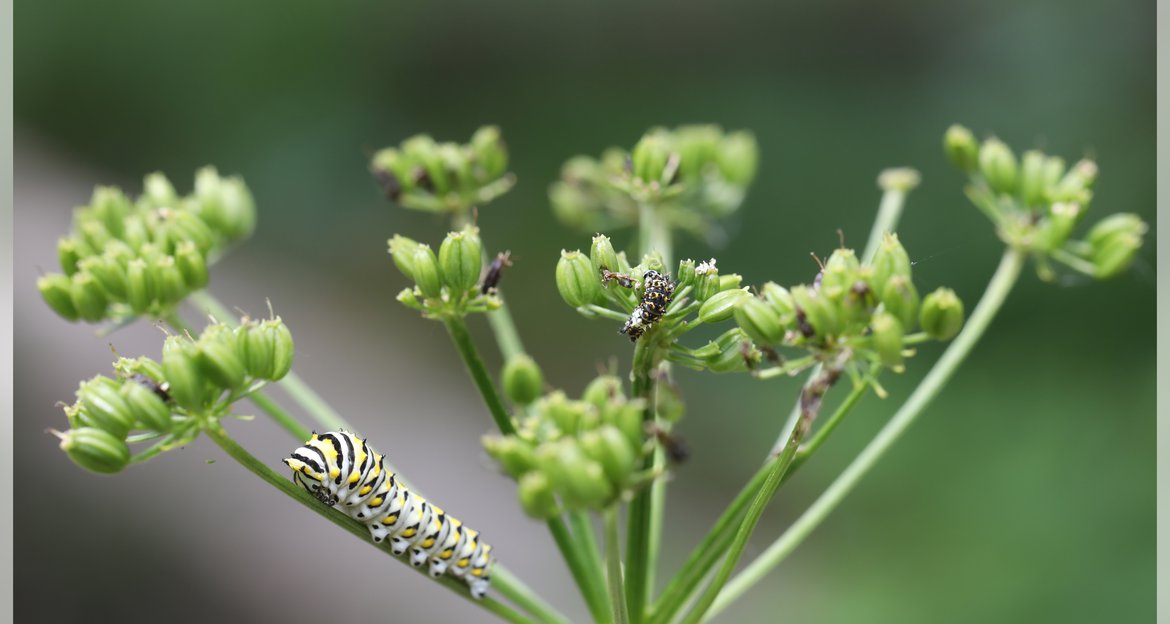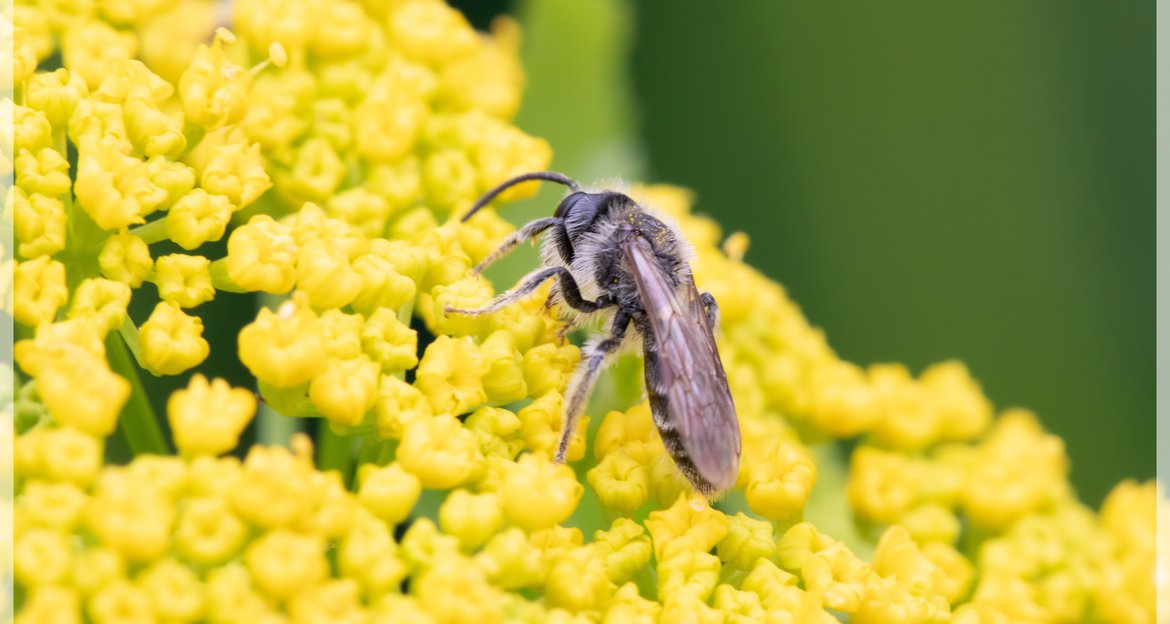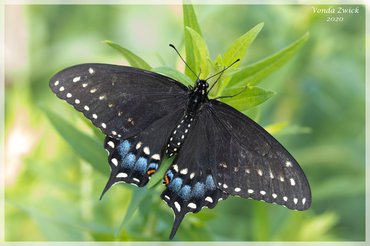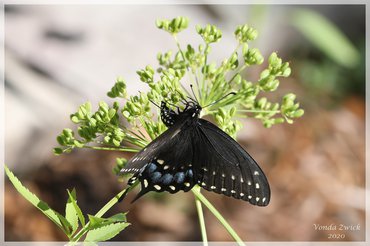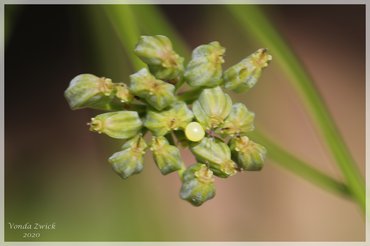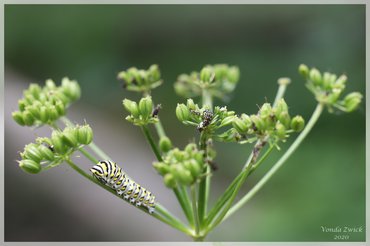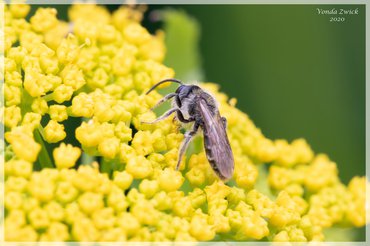Attracting Eastern Black Swallowtails the Native Way
Posted by Vonda on July 12, 2020
There is a lot of information out there about attracting Eastern Black Swallowtails with host plants in the carrot family like carrots, parsley, dill, and fennel. Sometimes the invasive Queen Anne's lace is mentioned. However, none of these plants are native. The Eastern Black Swallowtail is a native butterfly, so what did caterpillars eat before we brought our garden plants across the ocean?
Golden Alexander
One of the native host plants for the Eastern Black Swallowtail is Golden Alexander. I have two varieties in my garden: Zizia aurea (Golden Alexander) and Zizia aptera (Heart-leaved Golden Alexander). Some say the swallowtails prefer the garden plants to the natives, but I have had eggs and caterpillars on both native species. In fact, this year, the swallowtails have largely ignored my carrots and parsley in favor of the natives growing in my rain garden.
In the last few days, I have seen them around quite a bit and the girls are eager to lay their eggs. I was able to catch one in the act of ovipositing (laying eggs) on the Golden Alexander seed heads. While I have abundant carrots in the raised vegetable garden bed and pots filled with parsley, it was the Golden Alexander that captured her interest.
When I returned later, I was able to find some eggs - all of which were laid among the seed heads. The eggs are a very pale yellow in color. They are circular in shape and smooth without ridges. Eggs generally hatch in 3-5 days.
The Heart-leaved Golden Alexander was popular earlier this spring. Despite seeing few swallowtails at that time, I was very surprised to discover several swallowtail caterpillars of various instars on the seed heads and stems of the Heart-leaved Golden Alexander. To date, I have seen no butterflies, eggs, or caterpillars in the carrots or parsley, which has come as a surprise.
If you want to attract Eastern Black Swallowtails to your yard but you don't care to plant an herb/vegetable garden, you should consider adding some Golden Alexander to your yard. They are a lovely perennial, producing clusters of tiny yellow flowers in early spring that are a favorite with small pollinators.
Images in this Post
-
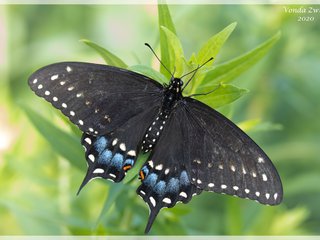
Eastern Black Swallowtail
Female Eastern Black Swallowtail sunning on New England Aster
-
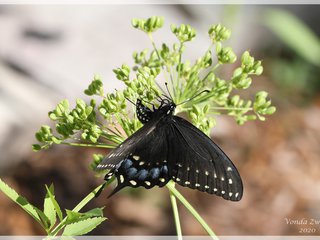
Eastern Black Swallowtail on Golden Alexander
Female Eastern Black Swallowtail ovipositing on native Golden Alexander
-
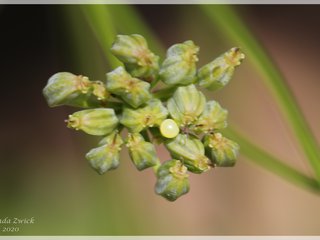
Eastern Black Swallowtail Egg
Eastern Black Swallowtail Egg found on Golden Alexander seed head
-
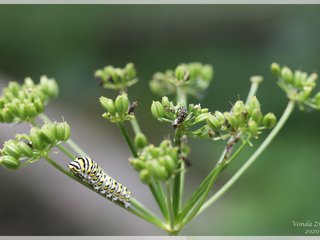
Eastern Black Swallowtail Caterpillars
On Heart-leaved Golden Alexander
-
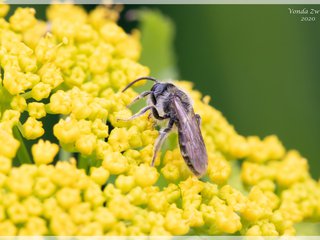
Golden Alexander
Golden Alexander and Small Pollinator
